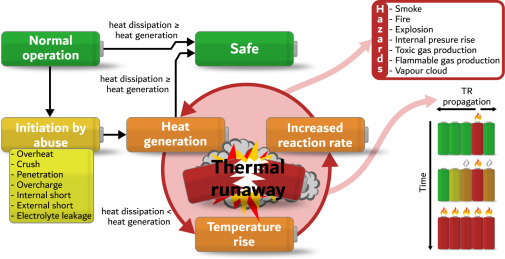TexasPE
Chemical
- Aug 27, 2003
- 36
Is the statement that a Battery Energy Storage System that utilizes LiFePO4 type batteries (manufactured by SunWoda) immune from a fire potential defendable based on actual performance data? Most opponents want to point to the numerous cases of Thermal Runaway type fires but most of these seem to be different chemistry battery types. Is this statement by the operator of a proposed facility defendable?

